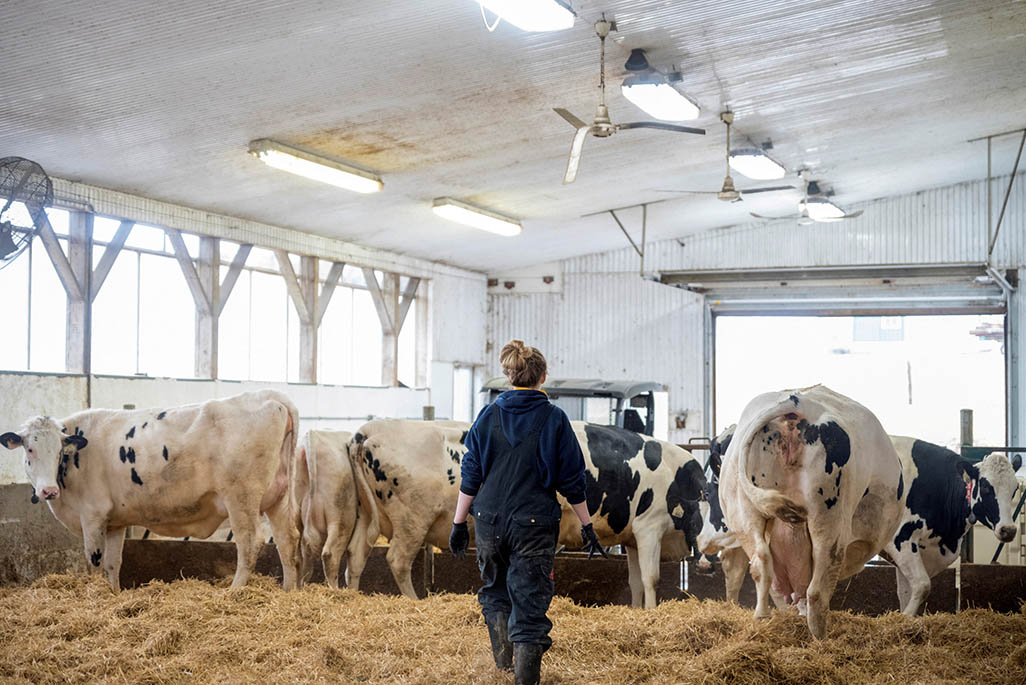The United States and Europe are taking steps to acquire or manufacture H5N1 bird flu vaccines that could be used to protect at-risk poultry and dairy workers, veterinarians and lab technicians, government officials said, moves influenza experts say could curb the threat of a pandemic.
U.S officials last week said they were moving bulk vaccine from CSL Seqirus CSL.AX that closely matches the current virus into finished shots that could provide 4.8 million doses of vaccine. European health officials told Reuters they were in talks to acquire CSL’s prepandemic vaccine.
Canadian health officials said they have met with GSK GSK.L, maker of Canada’s seasonal flu shots, to discuss acquiring and manufacturing a prepandemic bird flu vaccine once its seasonal flu production capacity is freed up.
Other countries, including the UK, are discussing how to proceed on prepandemic vaccines, scientists said.
The actions follow the explosive spread of a new strain of bird flu that emerged in late 2020 and has caused unprecedented numbers of deaths among wild birds and domestic poultry and has begun infecting many mammal species.
In March, U.S. officials reported the first outbreak of the virus in dairy cattle, which has infected dozens of herds in nine states and two dairy workers. The U.S. Food and Drug Administration has estimated that 20% of the U.S. milk supply shows signs of the virus, indicating a wider spread is likely.
Human exposures to the virus in poultry and dairy operations could increase the risk that the virus will mutate and gain the ability to spread easily in people.
“All of our efforts need to be focused on preventing those events from happening,” said Matthew Miller, co-director of the Canadian Pandemic Preparedness Hub at McMaster University. “Once we have widespread infections of humans, we’re in big trouble.”
Dr. Angela Rasmussen, a virologist at the University of Saskatchewan, said she has been in discussions with U.S. and Canadian officials about using vaccines to protect workers following the virus’ spread into new mammal species.
Dawn O’Connell of the U.S. Administration for Strategic Preparedness and Response said the government is “looking closely” at the possibility of vaccinating farm workers and others in close contact with the virus.
The U.S. has contracts with CSL and GSK to test prepandemic vaccines that more closely match the circulating virus than older H5N1 vaccines in the stockpile. The U.S. is moving forward with the CSL vaccine, a Department of Health and Human Services official confirmed.
Discussions about prepandemic vaccine use are going on at government levels and among scientists in a number of places, including in the UK, said Wendy Barclay, chair in influenza virology at University College London, who also researches avian flu for the UK Health Security Agency.
If deployed strategically to dairy farmers, healthcare workers and those in close contact with infected animals, “it would put a pin in the virus,” she said, although she said it was not clear if this step was necessary yet.
The UK government did not comment but said it is monitoring the situation in the U.S.
In Europe, the European Commission’s Health Emergency Preparedness and Response Authority is working on a joint procurement of CSL Seqirus’s vaccine to “potentially prevent a pandemic” sparked by individuals exposed to infected birds and animals, spokesman Stefan De Keersmaecker told Reuters.
A spokeswoman for CSL, which has contracts for pandemic influenza vaccines with 30 governments, said the company has been in talks with several governments about procuring vaccines since 2022. Those requests have accelerated with the U.S. outbreak, she said.
PREPANDEMIC STOCKPILE
The U.S. maintains a stockpile of prepandemic vaccine candidates and bulk vaccine against an array of influenza strains and conducts clinical trials to support an Emergency Use Authorization or FDA license in the event of pandemic.
Seasonal flu vaccine makers, including Sanofi SASY.PA, could also be asked to shift to producing pandemic flu vaccines.
The U.S. is in talks with mRNA vaccine makers Pfizer PFE.N and Moderna MRNA.O about potential pandemic vaccines.
Dr. Richard Webby, a St. Jude Children’s Research Hospital virologist who studies flu in animals and birds for the World Health Organization, said the situation in dairy cattle merits vaccine use.
“If we look at the exposure levels that some of these farmers are getting, it’s high,” Webby said.
The decision on how and when to use the vaccine will hinge on evidence of increased transmission, severity of disease, cases in people with no link to a dairy farm and mutations in the virus, U.S. Centers for Disease Control and Prevention Principal Deputy Director Nirav Shah said.
Dutch flu virologist Ron Fouchier of the Erasmus MC in Rotterdam, who has conducted experiments mapping the changes necessary for bird flu to spark a pandemic, said Europe’s plan is to procure the CSL vaccine for people occupationally exposed to the virus.
His lab could well be eligible if a vaccine becomes available, he said, adding, “I would certainly take it.”







Click here to change your cookie preferences